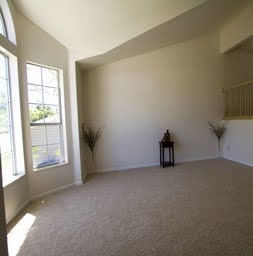Knock, knock. Who’s there? No one — and that can spell trouble for you and your insurance coverage if something goes wrong when you’re not there.
If your home is left vacant for an extended period of time—thirty days or longer—you can protect yourself with insurance in case something goes wrong while no one’s home. But if you don’t have the right insurance policy for your vacation home, you may be out of luck.
We had a client who lived in a different state, about 1,200 miles away, for an extended period of time, but didn’t think to tell us. A pipe burst in the vacant home during the winter, and it went unnoticed for a long time.
The adjustor who inspected the property was able to tell when the damage occurred and that it was outside the time limit to report the claim. (These inspectors are VERY experienced, and they will probably be able to figure out all the details of your damage and your claim.)
Our client’s case is still under investigation. Suspicions are high, and various pieces of documentation and testimony have been requested from our client. It has been a frustrating experience for us, because we didn’t have all the facts about his empty home, and he doesn’t understand why he’s facing a potential declination.
When Is Vacant Home Insurance a Good Idea?
Most carriers will consider writing a risk if they understand how the property is situated, whether it’s an owner-occupied property, an investment property, a commercial property, or a vacant home.
Vacant home insurance can be a difficult policy to obtain, but there are some situations where it really does pay off:
- Divorce
- Foreclosure
- Vacation home
- Employment in another location
- Aging parents
We have a client who decided to move closer to work after he was divorced. His ex-wife moved away as well, so their joint home was up for sale and vacant. We had trouble finding a carrier who would write the account, so we were forced to place it with the New York Property Insurance Underwriting Association (NYPIUA). This provided physical damage coverage to the dwelling only without the possibility of declination. The premium was higher, and liability was not included.
We were able to secure renter’s insurance on his apartment in New York City and extend the liability to the vacant house, located in a suburb north of NYC.
Why Is It So Difficult to Insure a Vacant Home?
Vacant homes can be attractive to burglars and vagrants, who can access empty property more easily than occupied homes and cause damage.
And if you’re not living in the property full-time, it’s probably not getting the same proper care or attention as an owner-occupied property. The vacant property could sustain lots of damage if, for example, a pipe bursts or a branch falls on the roof. It’s the responsibility of the homeowner to address problems right away and prevent further damage.
Insurance is about leverage. You pay a small consideration (the premium) for a large sum of money in return (the benefit). Check with your broker on how vacant properties are treated to make sure you’re covered for both physical damage and liability.
Linda Rey is a licensed insurance agent at Rey Insurance with a broad spectrum of expertise in life, accident, health, property, and casualty insurance, as well as retirement planning and college funding strategies. Follow her on Twitter: @ReyInsurance
Flood Insurance: What to do Before, During and After a Flood







